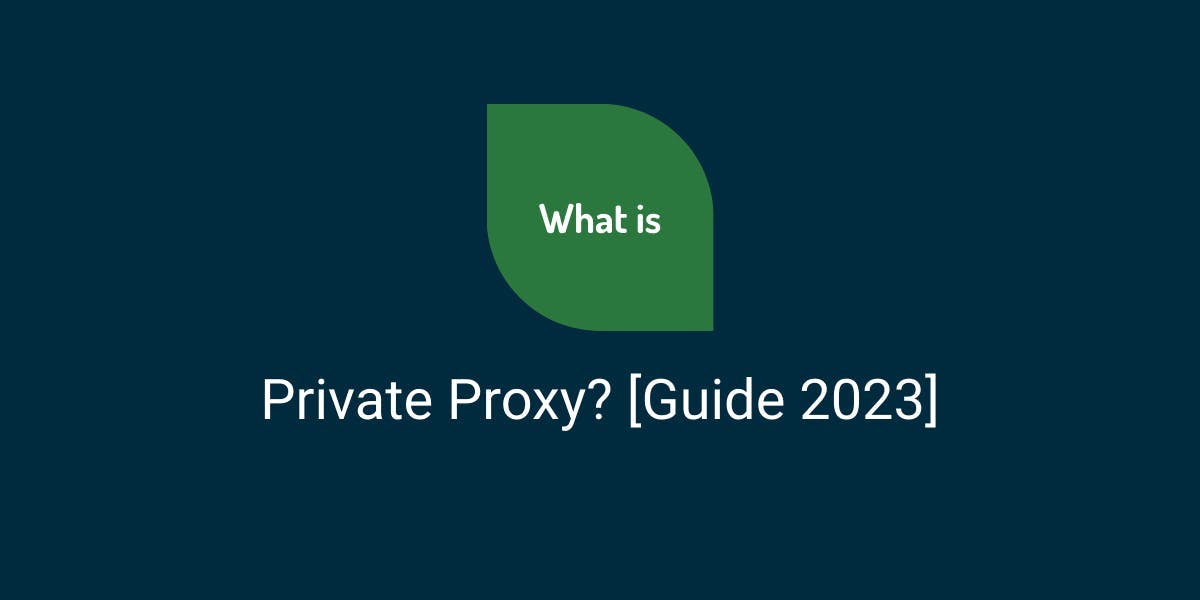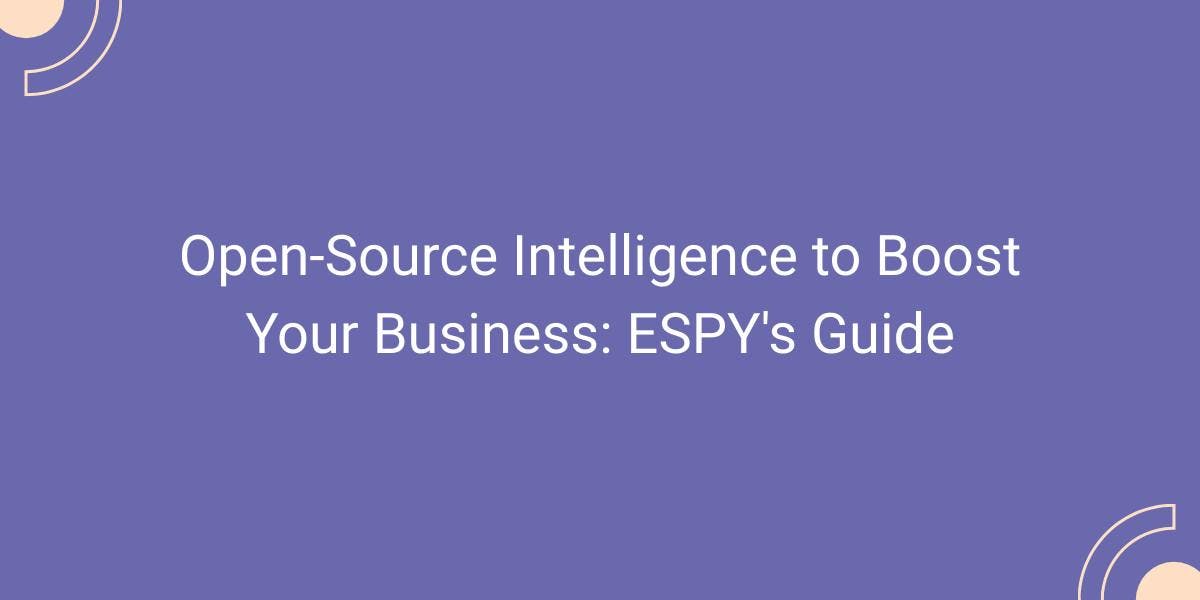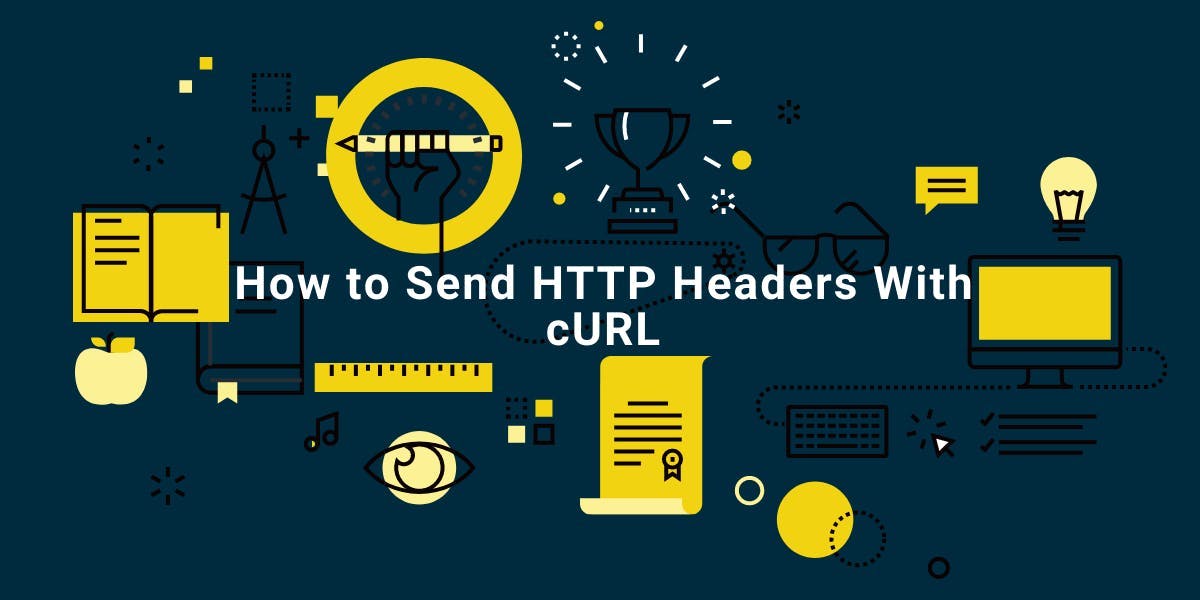6 Web Scraping Project Ideas to Sharpen Your Skills
Flipnode on Apr 21 2023

Are you unsure of where to begin with your web scraping project? Perhaps you're seeking the most optimal solution for your unique needs? Regardless of your situation, we're here to provide some assistance.
This piece covers the initial steps to take when embarking on a web scraping project, as well as how to select the appropriate proxy type for your scraping needs. Additionally, we'll delve into the advantages and drawbacks of utilizing in-house web scrapers for established businesses.
Web scraping project ideas
Web scraping is a versatile tool with numerous applications. For example, companies may utilize web scraping to extract public data from e-commerce sites and monitor price changes. Others may use web scraping to track reviews and protect their brand image.
If you're looking to integrate web scraping into your business strategy, here are some common project ideas to consider:
- Market research
- SEO monitoring
- Price monitoring
- Review monitoring
- Brand protection
- Travel fare aggregation
It's worth noting that these are just a few of the many potential use cases for web scraping. Companies may also gather sports data, job listings, and more.
1. Web scraping for market research
Regularly gathering public market data and conducting thorough research can give companies a competitive edge. It enables businesses to stay up-to-date on the latest trends and closely monitor high-performing competitors and their actions. Armed with this information, companies can develop marketing, sales, and other strategies that are data-driven and effective. However, geo-restrictions, IP blocks, and CAPTCHAs can all impede large-scale data collection. If you're thinking of launching a market research project for your company or seeking to improve your current processes, it's crucial to explore efficient web scraping tools.
2. Web scraping for SEO monitoring
In order to increase visibility and drive more traffic to their websites, companies must track their rankings and overall brand strength on popular search engines. SEO monitoring allows businesses to keep a watchful eye on their search engine result page (SERP) rankings. However, to effectively analyze SEO strategies or gain insights into search engine algorithms, companies need access to vast amounts of public SERP data. Fortunately, web scraping offers an efficient solution for collecting this data, without the need for time-consuming manual work or draining company resources.
That being said, search engine scraping presents its own unique set of challenges, including IP blocks, CAPTCHAs, and varying information based on location. To overcome these obstacles, advanced data gathering tools are a must-have when considering search engine scraping.
3. Web scraping for price monitoring
For those involved in the e-commerce industry, monitoring pricing information and product data is crucial for keeping up with ever-changing pricing trends and growing consumer price sensitivity. By implementing price monitoring, businesses can adjust their product prices according to market trends and new demands. It's no secret that pricing can be influenced by various factors, some of which are beyond your control. Collecting real-time pricing data can help you take charge and develop pricing strategies based on valid arguments and market conditions. With the aid of web scraping, companies can easily gather public pricing data and conduct price comparisons.
4. Web scraping for review monitoring
According to an in-depth study, four out of five people consider the internet a reliable source for researching products or businesses. Additionally, another study found that approximately 85% of internet users view online reviews as personal recommendations. This is precisely why responding promptly to customer reviews can help companies enhance their online reputation and even improve their search engine rankings. With review monitoring, businesses can regulate online conversations regarding their brand. By monitoring brand mentions and customer feedback across various review platforms, companies can also rely on collected feedback and perform sentiment analysis to gauge opinions toward their brand, product, or service. If you're in need of a review monitoring solution, relying on web scraping and advanced public data gathering tools can help boost your business.
5. Web scraping for brand protection
Counterfeiting, copyright infringement, and social media impersonation are the most prevalent ways that criminals take advantage of brand recognition to make money. Web scraping is an essential part of brand protection from the outset, as detecting and verifying potential threats without it is nearly impossible. With web scraping, companies can gather data from publicly available sources like online marketplaces, databases, social media channels, websites, and apps to identify any illicit activities mentioned earlier.
6. Web scraping for travel fare aggregation
If you're in the travel industry or planning to start a business in this field, web scraping can offer many advantages. Travelers nowadays use various websites to compare prices, reviews, and other relevant information to help them choose their desired destination. Web scraping plays a crucial role in providing real-time information, particularly in the case of time-sensitive data such as flight pricing. However, gathering public data on a large scale for travel fare aggregation can be challenging due to the risk of getting banned. Fortunately, with the aid of advanced web scraping tools powered by machine learning, this issue can be avoided.
Planning a project on web scraping: where to start?
When embarking on a web scraping project, it's crucial to first determine what kind of data you need to extract, whether it's pricing information or SERP data for SEO monitoring. Let's say, for example, you require the latter. In this case, you'll need a substantial number of proxies, or IPs, to connect to the desired data source through your automated web scraping script. These proxy servers will then gather the necessary data from the web server while avoiding anti-scraping measures and without exceeding request limits. Before selecting a proxy provider, however, you should estimate the amount of data you'll need, including how many requests you'll make per day, to determine the right proxy type for the job.
Choosing the right proxy type for web scraping projects
When it comes to web scraping, using the right proxy is crucial to ensure the success of your project. There are two main types of proxies: residential and datacenter proxies. Both types provide anonymity online, but the type of proxy you need to buy depends on the web scraping project you'll be doing.
Some people have misconceptions about residential proxies, believing that they provide ultimate anonymity. While residential proxies offer certain advantages, they are not always the best option. In fact, for certain types of web scraping projects, a datacenter proxy might be more suitable.
If you need a proxy for market research or other similar web scraping projects, a datacenter proxy is likely sufficient. These proxies are fast, stable, and most importantly, less expensive than residential proxies. On the other hand, if you're working on more complex web scraping projects like sales intelligence, a residential proxy may be a better choice. Most websites are aware of data gathering projects and getting blocked on such websites is a lot easier. With residential proxies, however, it's harder to get blocked due to their nature of looking like real IPs.
Before deciding on a proxy type, it's important to assess the amount of data you'll need to extract, as well as the number of requests you'll be making per day. This will help you determine the right proxy type and package to fit your needs. Once you've determined the proxy type, you can begin searching for a proxy provider that offers the appropriate services. With the right proxy in place, you can extract the data you need without worrying about getting blocked or having your project interrupted.
Pros and cons of in-house web scrapers
When it comes to web scraping, there are two main approaches: maintaining an in-house web scraper or outsourcing a web scraper from a third-party provider. While there are pros and cons to both approaches, it's important to understand the benefits and drawbacks of each option before making a decision.
One of the advantages of running a web scraping process in-house is having more control over the process. When you have an in-house solution for your web scraping project, you have full control over the process and can customize it to better suit your company's needs. This is particularly beneficial for companies with a team of experienced developers who can manage the web scraping process themselves.
Another advantage of in-house web scraping is faster setup speed. With an in-house team, you can set up the web scraper faster as the team will better understand the company's requirements. Moreover, if any issues arise, they can be resolved quickly without having to go through a third-party support team.
However, there are also some cons associated with in-house web scraping. One of the major drawbacks is higher costs. Setting up an in-house web scraper can be quite expensive as server costs, proxy costs, and maintenance costs can add up quickly. Additionally, you will need to hire and train skilled web scraping developers to manage the process. As a result, outsourcing web scraping tools from third-party providers is often a cheaper option.
Another challenge of in-house web scraping is maintenance. Maintaining an in-house web scraping setup can be a real challenge as servers need to be kept in optimal conditions and the web scraping program must be constantly updated to keep up with changes to the websites being scraped.
Overall, there are pros and cons to both in-house web scraping and outsourcing from third-party providers. Ultimately, the decision to go with one or the other will depend on factors such as cost, control, and maintenance requirements.
Conclusion
We trust that this piece has provided valuable insights into planning your web scraping project, as well as offering a more in-depth understanding of proxy-related matters.



